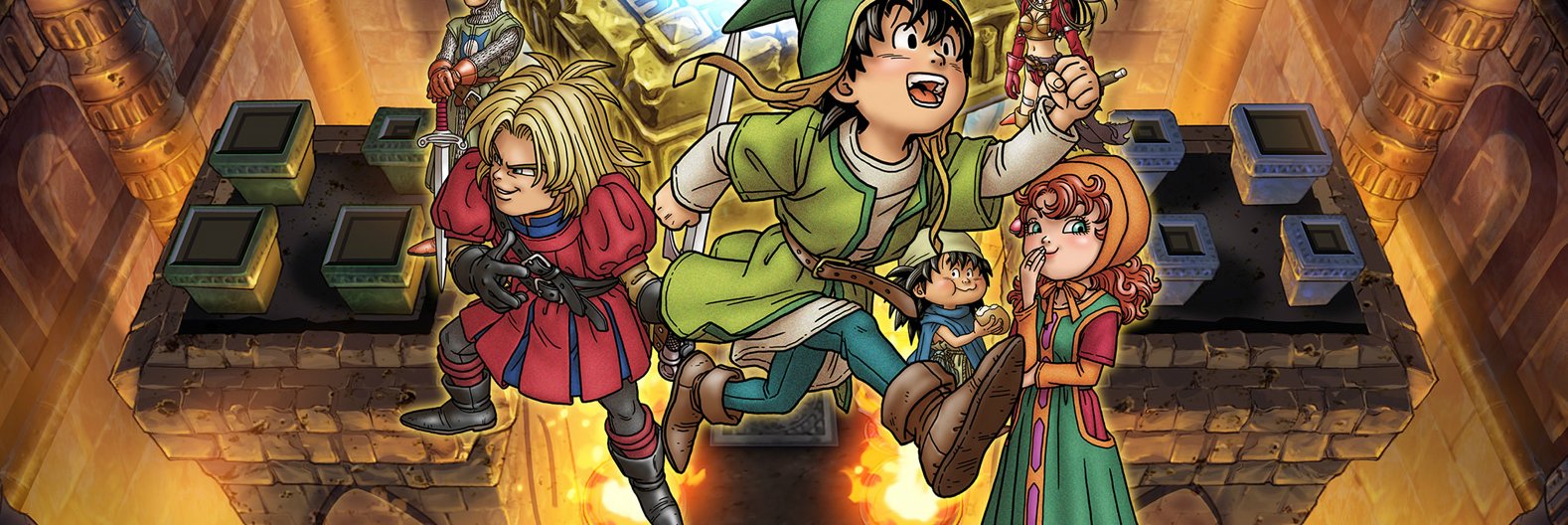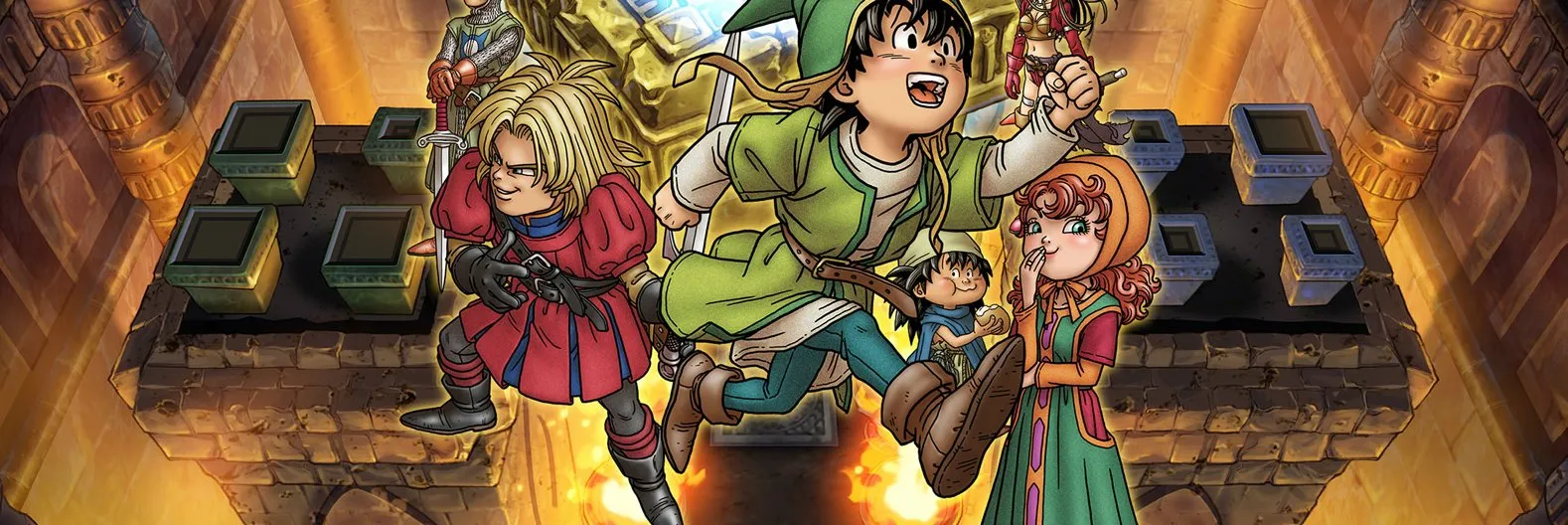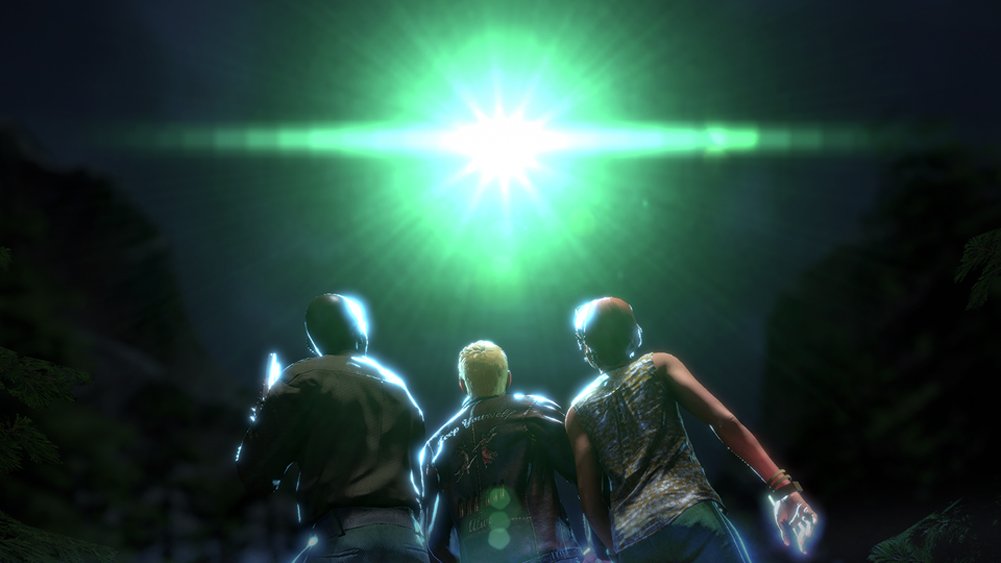Toriyama is timeless
While the first Dragon Quest was the first JRPG I ever played, I never really got into the series until over a decade later. In the world of DQ, I was a dedicated tourist — present, but almost never at launch like I was for Final Fantasy.
For those of you who may feel the same, it’s never too late to start.

Dragon Quest VII: Fragments of the Forgotten Past (3DS [reviewed], iOS, PlayStation)
Developers: Heartbeat, ArtePiazza
Publisher: Square Enix, Nintendo
Released: August 26, 2000 (PlayStation), September 16, 2016 (3DS)
MSRP: $39.99
Dragon Quest VII: Fragments of the Forgotten Past is a full-on remake of the 2000 PlayStation classic, which deserves to be immortalized for as many generations as Square Enix can spare. And this isn’t some half-assed opportunity to capitalize on nostalgia with a $20 mobile port of a Final Fantasy spinoff with Newgrounds artwork, but a lovingly crafted re-introduction with its own set of shortcomings.
Call me crazy, but I actually liked the Lunar-era spritework in the original. A lot of townsfolk blended together and the character models were all wide chibi renditions of the beautiful art, but it had a really smooth quality to its isometric feel, which was a wide departure from its predecessor. It’s great that you can finally see a lot of the characters fully realized in the 3DS version (specifically the enemies, which look at lot more pronounced), but there’s still a dated feel to it — mostly in regards to the UI and text. Those elements look smudged and not optimized in the slightest, though it might have something to do with the fact that there were hundreds of lines of dialogue to re-translate. Pop-in also occurs frequently, which is not a good look given the overhaul.
But that same criticism can’t be levied at the adventure itself. It was already ahead of its time as one of the most ambitious projects ever (so much so that original developer Heartbeat went on hiatus, and eventually closed down entirely after the game’s development). VII has an unconventional loop that not many games have replicated over the years that’s a tad more linear than you’re probably used to. After discovering that many islands once existed years before your time, the player and his crew will actually go back to the past to save the future, one island at a time. Repeat that process for roughly 100 hours, culminating in a final boss, and you have one massive game.
If you’re really big on narratives it’s not going to whet your appetite, and that’s perfectly fine. Not every game needs a 500-page manuscript to explain the difference between fal’Cie and l’Cie (I could if you have a minute at a bar sometime!). And really, VII is about relationships — there’s a feature where you can talk with your party at any time — and the good old-fashioned numbers game. It gives you a reason to return to it on multiple levels, from forging new friendships and discovering its worldly inhabitants to creating new ways to approach each confrontation.
The heart of Dragon Quest VII is its class system, which outshines most job mechanics today. Just about every role you can think of is present, and right went you think you’ve come to grips with a particular playstyle, you move on to a new wacky master classes like “Teen Idol” (a variation of Bard) with more abilities to learn. While some will be tempted to use a cheat sheet, I had a lot of fun relearning each combination required to unlock more classes in a Pokémon-like “collect them all” fervor.
Again, it’s a numbers game. The battles themselves are old-school turn-based joints, moving between the first-person perspective with each enemy in view to a zoomed-out camera while attacks actually take place. Random encounters (a concept most people probably won’t put up with now) are gone in lieu of enemies that can be seen on-screen, and it’s probably one of the most appreciated upgrades that still retains the core feel of the game.
If you like extra shit, this is going to be your new jam, because that linearity really opens up if you’re in the mood for exploring. There’s a casino, a recruitment minigame (which was reworked for 3DS), and a ton of other activities beyond just grinding and mastering each class. I haven’t even discovered the new endgame dungeon that was added in for the remake and I’ve played it more than the vast majority of 2016’s releases. There’s also a few slight balance changes, like some cut tedium for the game’s opening puzzles (which help make the first few low-key hours more engaging), and what feels like an overall slight decrease in difficulty.
Nearly every Dragon Quest has added something unique to the gaming landscape as a whole, but Dragon Quest VII: Fragments of the Forgotten Past is one of the best of the lot. As an RPG, VII simply begs to be played, though not necessarily on 3DS if you can swing it (or dig it out of a box somewhere).
[This review is based on a retail build of the game provided by the publisher.]









